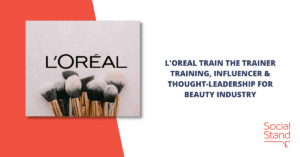After the previous wave of departures from Facebook, are you still active on MeWe?
Aside from gaining users during the initial phase, when everyone jumps on the bandwagon, a social platform must truly earn the love and loyalty of followers to stick around on the platform. Facebook has faced many complaints and ups and downs. But its users’ actions are truthful. When you have a lot of friends who are still active on a social platform, it takes a lot of determination to leave it. MeWe’s selling points are that it carries no ads, no algorithms, and no spyware. While this may seem like a good thing for users, it is still difficult for merchants to develop, promote, or market their brands there. Algorithms, which can be a double-edged sword, do create an echo chamber. Yet it also brings a favorite content for viewing pleasure. Whether such algorithms are good or bad, only readers can truly judge.
Facebook has recently updated its algorithm logic. It has implemented a black box system with minimal transparency. It also recently ran a test and surveyed users worldwide for opinions on generated content. For example, it asked users if they were inspired by a certain content shown to them. Facebook’s original algorithm was largely based on Facebook groups, as well as the friends and pages a user follows. The platform also considers some hidden factors such as how often the user interacts with content from certain groups and pages. It displays items relevant to close friends and favorites first. But even with this data, Facebook knew that it could not fully capture the true preferences of users.
A “Close Friend” on Facebook is one with whom you have a close relationship in real life. It may not necessarily mean that you like all the content that he posts. So, Facebook’s survey can establish big data for Facebook to discover the general likes and dislikes for certain content of a particular region or users globally. It can also better understand a person’s preferences for individual topics. Of course, when this is implemented, friends who are concerned about privacy may long to understand the reasons and data that Facebook uses to determine the type of content displayed on feeds. Facebook has always asked its users to check why certain advertisements are shown on their newsfeed. If Facebook expands this to let users understand why each post is displayed, users may perhaps be more satisfied and have their privacy concerns alleviated.
In its proactive survey of users, Facebook also tested allowing users to click on a cross in the upper right corner to hide the displayed content. This has all along been a feature of advertisements. Users may not like Brian Cha‘s intensive advertising and content. Instead of having to “Quit YouTube” or “Quit Facebook” to avoid them as he retorted, all they have to do is to click on the cross to indicate their preferences.
In the past six months or so, most brands asked for more detailed content marketing strategies and productions. These contents are very different from the relatively simpler expectations of generating social media content in the past. More brands now put deeper thought into the content. They value what their target customers seek. During this year’s April Fool’s Day, many brands prefer to engage their users by sharing knowledge rather than jokes due to the global pandemic. Some brands still hope to spread a little cheer like the “coriander craze.” Is this merely to get everyone talking about it? Or is the content able to draw a connection between the value of the brand with its products and services? It is probably alright to put something out just for laughs every once in a while. But if this is done simply to gain likes, will your brand be able to cross paths again with the audience in the long run? Brands need to consider the content that existing and potential users want.Not every brand page can have an explosive number of likes and followers because not every brand offers a product that can meet everyone’s needs. The more specialized your product is, the more niche your brand is. You shouldn’t expect the same number of followers that the media or popular brands have. If you simply focus on increasing the number of likes on a page, you will end up losing potential customers. Google currently places a strong emphasis on SEO to improve a user experience on the web. Facebook is also focusing on the user’s experience in terms of the content displayed on one’s newsfeed. Is your brand’s content strategy also following this general trend?
Source: https://www.visiongo.hsbc.com.hk/zh-HK/article/crosses-and-true-likes-on-facebook








